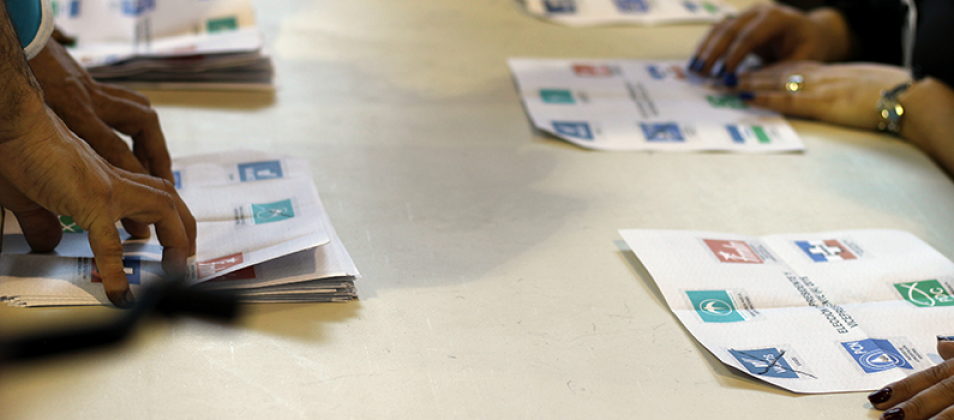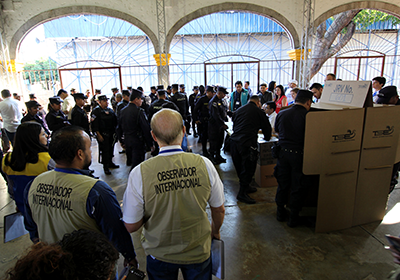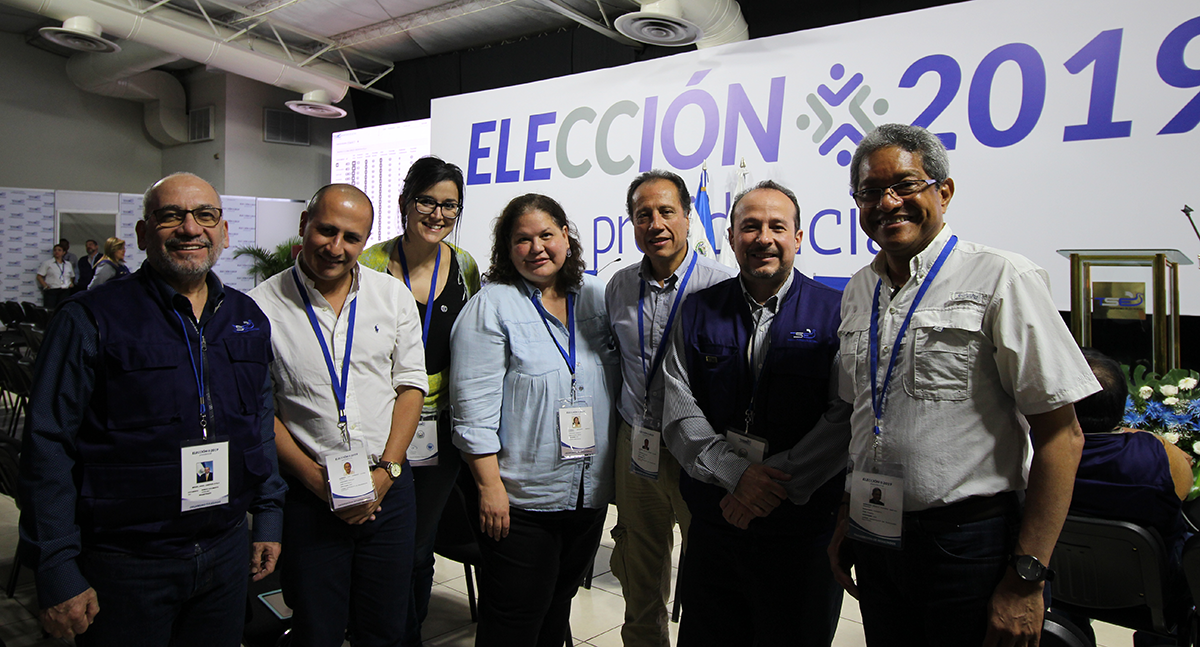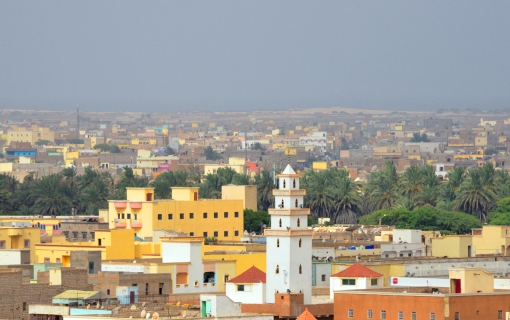
Results Transmission Expertise Contributes to Credible Presidential Election in El Salvador
by Fernanda Buril
The International Foundation for Electoral Systems (IFES) provided invaluable support to the Salvadoran electoral authorities’ work to administer a transparent election, improving the performance of the results transmission system and contributing to the release of clear, accurate and timely results of the country’s February 3 presidential election. The support was funded through the Consortium for Elections and Political Process Strengthening (CEPPS).
On Election Day, El Salvador held its fifth presidential election since the Chapultepec Peace Accords of 1992, which put an end to the country’s 12-year civil war. Nayib Bukele, running for the Great Alliance for National Unity (GANA), became the first candidate outside the traditional parties – Farabundo Martí for National Liberation (FMLN) and Nationalist Republican Alliance (ARENA) – to win the presidential race since the end of the internal conflict. Preliminary results showed that Bukele received 53.03 percent of the valid votes, avoiding a second round and delivering a strong rebuke to El Salvador’s historical political powers.
Amid the threat of criminal gangs, general citizen discontent with the political status quo, and statements made by Bukele during his campaign about the possibility of electoral fraud, this presidential election had very high stakes. The most recent electoral processes had raised suspicions among Salvadoran citizens and highlighted the need for IFES’ expert advice in order to ensure a credible election and regain citizen trust in electoral authorities. In the last presidential election in 2014, Salvador Sánchez won the race in the second round by only 6,364 votes, a margin of 0.22 percent. Sánchez’s opponent, Norman Quijano, filed a failed request to annul the election, claiming the process had been fraudulent. In 2015, the results of legislative and municipal elections were delayed by two weeks due to technical issues. More recently, during the March 2018 legislative and municipal elections, the company hired by the Supreme Electoral Tribunal (TSE) to process the votes presented some results that did not match the results sent from the polling centers. The problem was caused by a script error not previously detected during the pre-Election Day tests and simulations and led the TSE to decide to start managing the transmission process independently.
Given all these challenges, the 2019 election was crucial for restoring Salvadoran citizens’ trust in the work of the election officials and in the country’s electoral processes. Citizens needed to experience a transparent process culminating in timely, accurate and credible results. To accomplish this, over the three months leading up to the election, IFES sent a team of experts on transmission of election results to San Salvador to provide technical assistance to the TSE’s information technology division (USI). The IFES team supported the USI in testing its transmission systems, identifying and addressing potential problems, and ensuring the TSE would be able to release the election results accurately and steadily.
On February 3, thousands of domestic and international observers witnessed the success of this project. The transmission and processing of the results from the polling stations were quick and smooth. Both political parties and the press had access to the results as they were released live on screens installed at the capital’s convention center. Less than three hours after the beginning of the transmission of results, Bukele could already be declared the virtual winner. Bukele’s opponents publicly accepted the results, corroborating the good work performed by the country’s election officials and contributing to a peaceful democratic process.
Collaborating with electoral institutions around the world to deliver transparent and credible elections is at the core of IFES’ mission, and examples like El Salvador’s show that solid electoral operations can go a long way in fulfilling these objectives.
Read IFES’ Frequently Asked Questions on Elections in El Salvador: 2019 Presidential Election for additional information.
Established in 1995, CEPPS pools the expertise of three premier international organizations dedicated to democratic development: IFES, the International Republican Institute and the National Democratic Institute. CEPPS has a 20-year track record of collaboration and leadership in democracy, human rights and governance support, learning from experience, and adopting new approaches and tools based on the ever-evolving technological landscape.
Fernanda Buril is a program officer for the Americas and technical coordinator for electoral operations at IFES.













